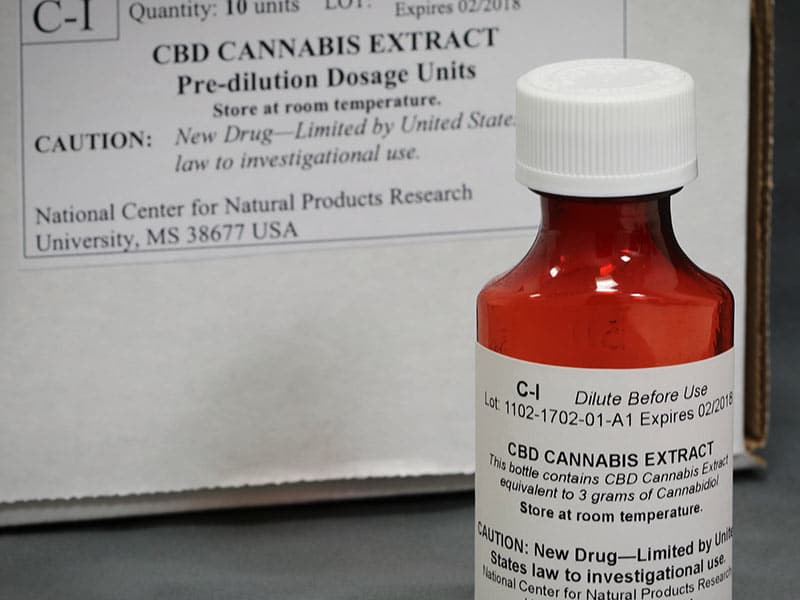A clinical trial of a new drug derived from marijuana is offering hope to children who experience uncontrollable seizures. The six-month study which began in November 2018, will determine the safety and tolerability of the medication for children with Intractable Epilepsy, meaning that everything on the market has already been tried and failed to help them.
UMMC Associate Professor of Pediatric Neurology and Director of the Pediatric Comprehensive Epilepsy Program, Dr. Brad Ingram is serving as the principal investigator and said that their work has been noted as a first among studies conducted by U.S. universities.
The children have monthly appointments where they receive the marijuana-derived drug that is dispensed out of UMMC’s research clinic. The participants are currently at the “goal dose” or the maximum dose of the trial and the results have been life-changing for some of the families.
“We’ve got 13-year-olds that have never spoken that are starting to say mama and dada now on it,” Ingram said. “It’s really changing who they are as people.”
Along with the number, severity, and type of seizures the children are having, the trial is monitoring their blood to see if there are any traces of THC, the psychoactive ingredient in marijuana which produces the ‘high.’ Ingram said checking for THC or CBD traces has never been done before in a drug trial like this. Ingram added that marijuana, CBD, and THC are being handled and discussed nationally, but not in the medical community.
“This, I think is just a pinky toe into the swimming pool that is this project,” Ingram said. “We have long neglected CBD and THC as a potential for neurological and psychiatric disease primarily because of where marijuana went in the ’80s with criminalization and all of that sort of thing so that it has been easier historically for a physician to do human research with heroin than it is for us to do research with marijuana.”
If not approved for the continued year of study, the 10 children will be transferred to a drug called Epidiolex, the leading drug for Intractable Epilepsy. While Ingram said the product is FDA approved and would not require UMMC to distribute the product, he will still continue to follow the children’s progress.
“If they do worse, it is something that the world needs to know,” Ingram said. “My expectation would be that they would not do significantly worse, but we may start to lose some of those gains that we made.”
While Ingram said they are claiming that the CBD is the cause for the change in their seizure patients, there is no way to know that there isn’t another unidentified cannabinoid which is causing the improvement.
“Thus far, our numbers for seizure control, do seem better than Epidiolex’s,” Ingram said. “But what we can say with 10 patients is no body’s getting hurt, this is safe, let’s move on to the next step.”
In 2014, the Mississippi Legislature passed a bill, authored by Senator Josh Harkins, allowing the Medical Center to dispense CBD oil for the treatment of epileptic seizures in children. UMMC and the UM School of Pharmacy are working together on the study. The clinically tested investigational drug product is an oral cannabidiol, CBD for short, derived from marijuana grown at the UM School of Pharmacy’s National Center for Natural Products Research.
“What people take for granted is a big stride in their quality of life,” Harkins said. “These people, an inch to us is a mile to them. Like he said, being able to take your kid to the grocery store. Its little quality of life issues that we don’t even think about on a daily basis that these families are getting to experience and it’s all because of this research. I’m glad that Mississippi is doing this, i’m glad that we took the chance on something like this.”
As for the future of the study, Ingram said they hope to extend the children on the drug trial another year and add 10 or 20 more children to the trial.
“All of the moms, every visit are in tears because their children are so improved…” Ingram said. “Four years ago when the law was first written, the concept of using CBD in a patient made everyone nervous. Now I think everyone is like ‘well, it’s probably safe, but does it work?'”




